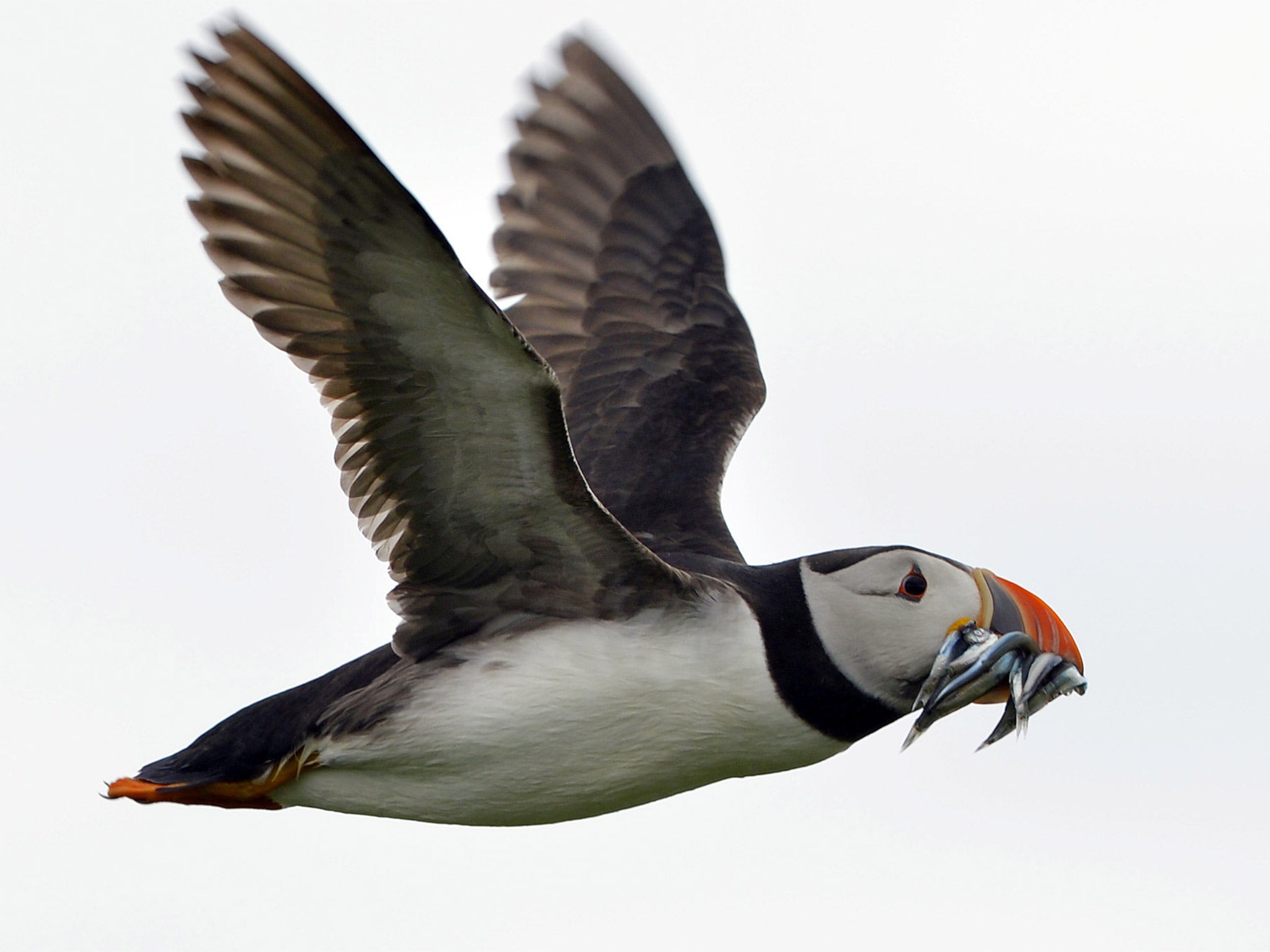Puffins and nightingales among 20 new species to join Red List of endangered British birds
Rural development and overfishing are believed to have contributed to the decline of bird numbers

The number of British birds whose numbers have declined to dangerously low levels now stands at more than a quarter of the native species in the UK, the latest survey from conservation groups has found.
Puffins, curlews and nightingales are among the 20 species to have joined the Red List of endangered British birds, as rural development and overfishing continues to wreak havoc on the feathered population.
The additions, which also include merlins, kittiwakes and white-fronted geese, bring the number of bird species on the “threatened” list that frequent the UK to 67 - 27% of the entire population of 244 species, and a significant increase on the 52 species on the list following the last assessment in 2009. “This highlights the continued erosion of the UK’s wildlife. It is sobering that much-loved species such as the curlew, puffin and nightingale are now of highest conservation concern in the UK,” said RSPB Conservation Director Martin Harper.
Sea birds are suffering as global warming heats up the oceans and reduces the supply of zoo plankton that they eat.
On land, birds are suffering from drying peat bogs and countryside development, which reduces available habitat and reduces their food supply.
Most of the 67 species on the Red List, compiled by a partnership of several organisations including the RSPB to be publised in the journal British Birds, have seen dramatic declines, having halved in number or range in recent decades. Others remain well below historical levels, or are considered at threat of global extinction, RSPB said.
Although the Red List signals that a species is in trouble it does not mean it is doomed. Three species have been removed from the Red List and put on the Amber List after they bounced back following conservation efforts.
They are the nightjar, the dunlin and the bittern – a type of heron known for its booming call that was heading for extinction in 1997 when only 11 males were recorded in England.
Join our commenting forum
Join thought-provoking conversations, follow other Independent readers and see their replies
Comments
Bookmark popover
Removed from bookmarks